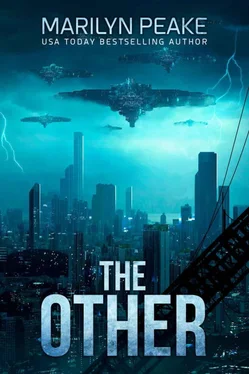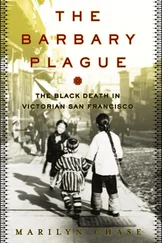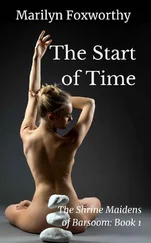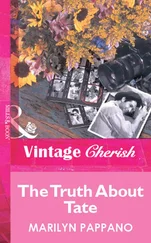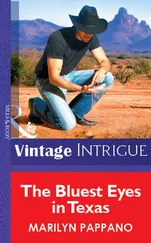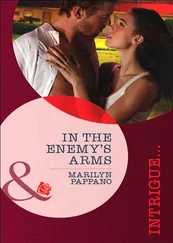She rummaged around in the cabinet and came out with something even better than paper towels: Clorox Wipes! She said, “I bought these last week. I always keep some here.”
After I cleaned the bird poop off my shirt, I looked around for a place to throw the wipes. I ended up adding them to a pile of garbage spilling out of a plastic can. They added disinfect smell to the putrid one monopolizing the air. Washing the Clorox off my hands, I wiped them on the back of my shirt to dry them.
As we stepped into the kitchen, I suggested we join Maggie’s father and Andy.
Max looked small and broken. I wondered who he’d been as a young man. He’d married. He and his wife had raised three children. His file said he’d been a painter, painting homes for income and artwork to fulfill his passion. I knew what it felt like to lose someone close to you. Losing my mom had broken me, but not completely. I was still young. I had my whole life ahead of me. Max did not.
As we approached the men, Andy put down the newspaper he’d been trying to convince Max to throw away.
I tried a different approach. I asked Max about his painting. I tried to imagine his home with a fresh coat of paint. It must have been a gorgeous house at one time. The living room was turquoise with a white ceiling, although the ceiling had taken on a gray tinge. The kitchen was yellow with the same color ceiling.
Max said, “I haven’t been able to paint lately.”
Andy, relentlessly pursuing his goal, said, “There’s no room to paint in here. Where are your paint brushes, anyway? Could you even find them?”
Max replied, “Mary was my muse. It’s not the same now.”
I asked, “Did you ever paint her? Ever do family portraits?”
Max said, “Yes.” The look in his eyes was one of sheer torment.
Maggie said, “Dad, would it be all right with you if I showed them your paintings?”
Max said, “Sure, sure…” Then, anger rising up inside him, he shouted, “But don’t give any of them away, you hear me, Maggie? Those are never to be given away, even after I’m dead and gone! OK?”
Placing her hand on her father’s shoulder, Maggie said, “Don’t worry, Dad. Those paintings mean a lot to me, too. Our family will always hold onto them.”
Turning to me and Andy, Maggie said, “C’mon. The paintings are out in the barn.”
Andy told me, “You go. I’ll stay here with Mr. Davenport.”
Making our way through the maze of boxes to a back door, we exited into a huge backyard with a barn at the top of a grassy incline. I felt short of breath and had a throbbing pain in the lower right side of my abdomen as we hiked up to it.
Unlocking a side door and flipping a switch, Maggie flooded the interior of the barn with light. This space was different than the interior of the house. There was room to walk. No piles of cardboard boxes. However, this was still a hoarder’s domain. The barn was filled with tables and the tables were piled high with stuff. There were all kinds of things hanging from the rafters: hoses and tools, blankets, deflated balloons, stained glass panels suspended from metal chains, canvas paintings on decorative ropes.
Walking past quite a few tables, I noticed there seemed to be a theme for each. Piles of books on one, balls of yarn on another, a few tables filled with kids’ toys, others filled with machinery parts.
Maggie took us to the far side of the barn. Several mannequins stood guard over wooden chests. The space had an eerie feel.
Once again, pain shot through my abdomen. Sitting down on one of the chests and bending over my thighs, clutching my knees, I let out a scream. I started apologizing, but my words were swallowed up by torment. I managed to say, “I’m sorry…”
Maggie said, “Don’t apologize. Can I do anything for you?” I felt horrified by my lack of professionalism. A client’s family member should not be tending to the Social Worker.
As had happened in the kitchen, the pain stopped in an instant. Just like that. Taking over my mind and body like some alien creature, and then gone in the blink of an eye.
I stood up. “I’m really sorry. I have no idea what just happened. I had another episode of stabbing pain, but it’s gone now. I’d love to see your dad’s paintings.”
Taking the lid off a wooden box about five feet tall and two feet wide, Maggie pulled out a large canvas painting. In it, five dogs were running around playing. Maggie said, “These are the dogs we owned when I was growing up.”
I moved closer to inspect it. I commented, “I don’t see Lucky.”
Maggie said, “Lucky’s new. My mom and dad got him at a shelter a few years ago.”
All the dogs in the painting looked healthy and of normal weight. I asked, “Was Lucky always so thin?”
Returning the canvas to the box and pulling out another one, Maggie said, “No. My dad needs help. He forgets where he put the dog food. Or he thinks he’s fed the dog when he hasn’t. His mind is completely clouded by losing my mother.”
I asked, “Maggie, do you have any idea what might have happened to your mother?” I had a feeling that things weren’t exactly as they seemed, or her mother had met with some kind of tragedy. If she wasn’t dead, someone should have noticed her by now. Unless she had run away and was hiding from family. Or she had been kidnapped. Or she’d gotten lost in the woods or had a car accident and couldn’t remember who she was. Had this family hired a detective? How hard had they looked?
Maggie said, “I don’t.” Tears streamed down her face. “I’ve offered to hire a detective, but my dad refuses to go along with that.”
That shocked me, considering the pain in her father’s eyes. Chills ran up my spine. Had he done something to harm his wife, maybe killed her accidentally? I had an active imagination. I tried to put a lid on it. I said, “Why don’t you hire one, anyway? It’s best to look for a missing person as soon as possible before…” I didn’t finish the statement.
Maggie said, “Look at this.” She flipped around the canvas she was holding.
It was a middle-aged woman with gray hair and blue eyes. She had a band of pink flowers in her hair. The painting looked like one of those portraits where the eyes twinkled, but it was hard to make out the emotion. I interpreted it as mostly joy with hints of sadness. As I walked back and forth in front of the painting, the woman’s eyes followed me. What did she want? I felt that she expected something from me.
Maggie pulled out a few more canvases. My favorite was an oil painting with thick layers of brightly colored paint showing a carnival in full swing. People wearing masks. Red scarves being pulled through the air like children’s balloons. Laughter. Dancing.
We looked at other types of artwork her dad had made: ceramic pots, stained glass windows. He had been quite prolific.
When we went back inside, I realized I had to pee.
Locking myself in the bathroom, I tried to figure out how to use the toilet without getting an infection from gunk splashing up on me.
I carefully lined the inside of the toilet bowl with toilet paper and floated some on top of the water.
I had a horrible retching fit from the disgusting sight of the toilet and the smell of the bathroom through which I desperately tried not to throw up. I flung open the curtains to the storage shelves, grabbed the Clorox Wipes bottle, popped open the lid and took a whiff. It helped. Clutching the bottle to my chest, breathing in the antiseptic smell, I awkwardly unsnapped and unzippered my jeans with the other hand, tugged them down to my knees, then grabbed the elastic of my underpants and pulled them down an inch at a time. I yanked sheets of toilet paper off the roll and covered the seat. When I finally sat down, I couldn’t pee. I was too tense. I reached over and turned on the water. Visualizing waterfalls and me sitting next to them drinking copious amounts of coffee, I finally relaxed enough to urinate in bursts. When my bladder finally emptied, I stood up and flushed the toilet. Returning the Clorox Wipes to the shelf, I noticed something sparkling on a shelf. A woman’s wedding and engagement rings! I picked them up and inspected them. Inside the engagement ring there was an inscription: To you Mary, my eternal love. Max. I wondered: why would she have left those behind?
Читать дальше
